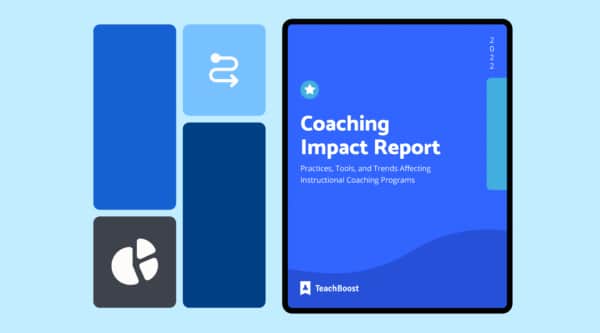


Mia Pumo, author and co-founder of Constructive Learning Design, believes leaders can juggle the role of evaluator, coach, and manager through active listening and general curiosity.
O
ur job as leaders is to develop our people, and coaching is a big part of that. And yet, at times, we also find ourselves in the evaluator role. The key to knowing which hat to wear in a situation comes from using the most critical coaching skill: listening. Only by deeply listening to the person’s issue will you know whether you need to give information from the leader’s perspective, give a directive, restate a school or district policy, or know if it’s an opportunity to coach and help someone grow.
So how do we reconcile the two tasks of coaching and evaluating? There are two major considerations when answering this question.
- How can I be transparent about which role I’m in when talking to my staff?
- How do I know when to switch hats from leader and evaluator to coach?
Below I’ll dive into the answers for each and how to play the part.
Be transparent
Transparency begins by sharing with your staff that you have different “stances” as a leader. Sometimes you’ll be a coach, and sometimes you will be a manager—and both of those are perfectly fine! Just be sure to state which role you’re playing that day.
For example, when having a one-on-one conversation, it’s perfectly acceptable to say, “I’m taking a coaching stance in this situation because I see an opportunity for growth.” Then, follow up with questions to support that. In turn, this will empower others to think more deeply and make decisions when appropriate.
Reminder: It’s important for the teacher to know what role you are in and for you to get yourself in the right mindset!
Have both hats on hand
It’s also okay to switch hats as situations naturally unfold or when you’re reflecting on previous conversations before meeting with a teacher. For example, let’s say you have a teacher who refuses to turn in or update lesson plans. After several reminders, you are ready to “manage” the situation by telling this teacher the consequences of not complying with the policy.
But instead of starting there, you switch hats, become curious, and begin asking questions to uncover why this teacher has not kept their lesson plans current. After talking, you find out the teacher is going through a divorce. Knowing this, you can practice empathy and develop a plan together to support the planning process while keeping their situation in mind.
Going deeper
Coaching skills are increasingly becoming part of the repertoire of great leadership. I’ve shared some quick ways above to get started but to really get the benefit, you need to go deeper into coaching as a leader.
By developing your ability to listen to understand, ask questions, give and receive feedback, communicate with transparency, and build trust, you are fostering stronger relationships that will lead to higher morale and resilience among staff and students.
At Constructive Learning Design, we have developed five pillars of coaching as a leader:
- Knowing Your People
- Creating Psychological Safety
- Having Meaningful Conversations
- Giving and Receiving Effective Feedback
- Developing Structures for Coaching Success
When these five pillars are in place, the benefits impact the entire school community with higher retention rates, better attendance, fewer discipline issues, and higher overall achievement.
Final note
Once you’ve developed these skills, you can pause in each conversation or meeting to ask yourself, “Do I need to be a leader, an evaluator, or a coach at this moment?” Once you know, you can then communicate that clearly and respond to what’s needed at that time.
About our Guest Blogger
Mia Pumo is the co-founder of Constructive Learning Design, an organization that develops and supports instructional coaches, and leaders as coaches. She is passionate about creating positive environments for students and teachers, and designs professional development for educators based on positive psychology research. Recently, Mia and her team launched CoachFest, a conference and retreat for coaches in education, and also created CoachWeek, a virtual conference where Mia presented sessions on Creating the Conditions for Coaching Success and Navigating Difficult Conversations at Work.
Mia’s passion for coaching and supporting others reaches beyond her work. Currently, she serves on the board of directors for HopeTree Family Services, and is also a certified life coach. She published her first book in 2017, What Are You Craving?: A Step-by-Step Guide to Designing the Life You Were Meant to Live.
Be sure to follow her on Twitter @mpeacepumo!
{{cta(‘352a410e-db79-4f33-a482-d301e8041965′,’justifycenter’)}}
Illustration by Tatyana Krasutskaya from Ouch!
Stay Connected
News, articles, and tips for meeting your district's goals - delivered to your inbox.








